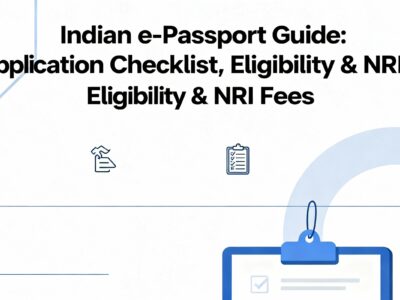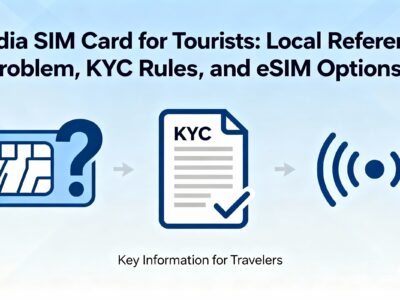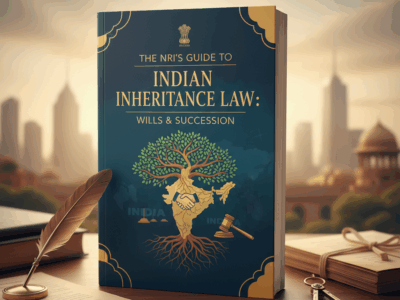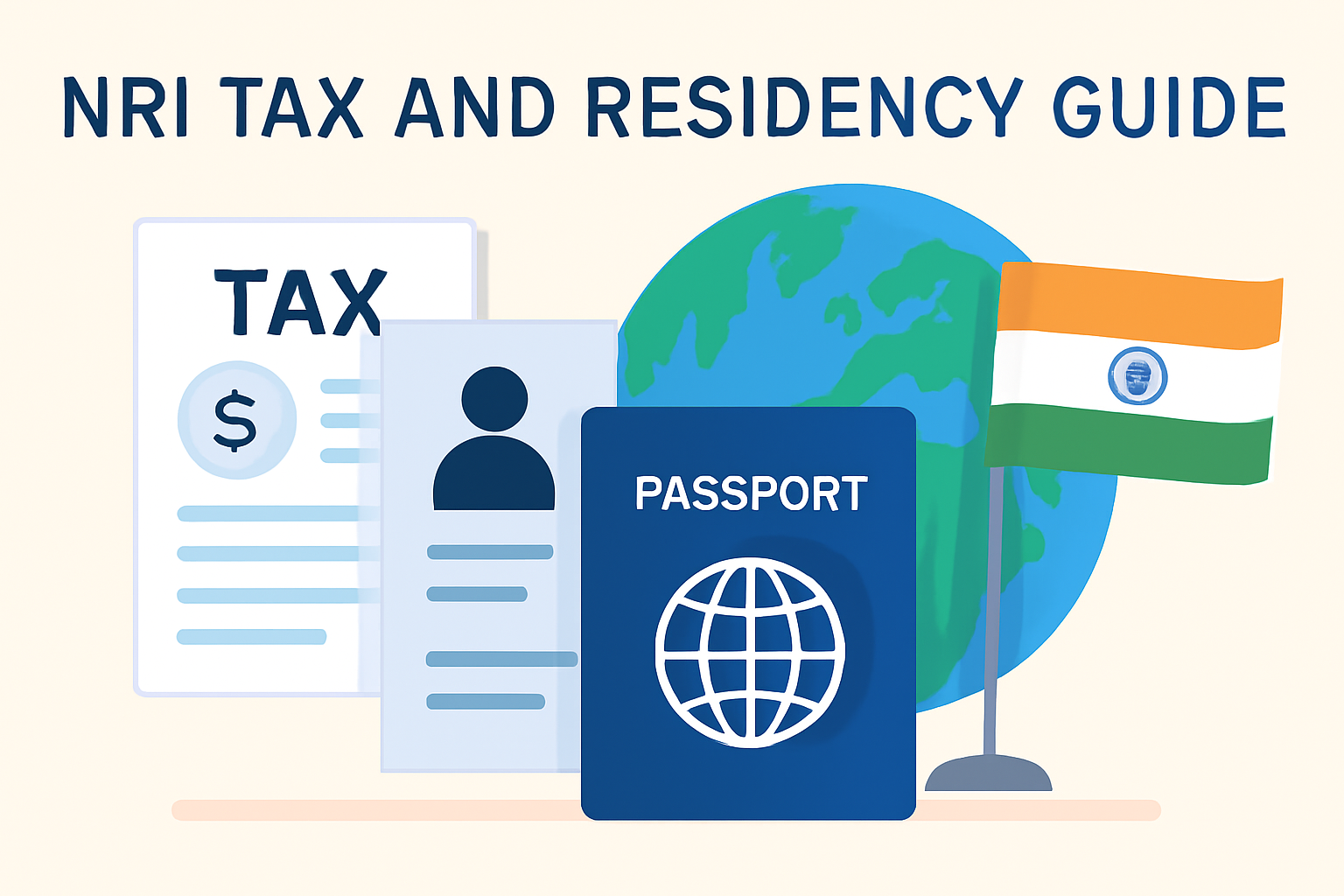Discovering that your property in India has been illegally sold using a forged gift deed is a nightmare for any Non-Resident Indian (NRI). This sophisticated crime leaves you feeling powerless, separated by thousands of miles from the legal battle ahead. But you are not helpless. This comprehensive guide, created by legal experts at eVaakil.com, provides a clear, actionable framework to fight back. From the emergency three-pronged response—criminal, civil, and administrative—to detailed templates for filing an FIR and securing a court injunction, we will walk you through every critical step to dismantle the fraud and reclaim your rightful ownership.
Your Property Was Fraudulently Sold.
Here's How You Fight Back.
This guide provides a comprehensive legal and practical framework for NRIs whose property in India has been illegally transferred through forged documents, based on real-world scenarios.
Start Your Action PlanAnatomy of a Sophisticated Property Fraud
Understanding the perpetrators' methods is the first step to dismantling their scheme. The fraud is typically a multi-stage process involving forgery, impersonation, and collusion.
Forgery of Identity
Fraudsters create fake identification documents (like Aadhaar or PAN cards) in the NRI owner's name, but with an impersonator's photograph.
Creation of a Forged Deed
A "Gift Deed" is often the chosen instrument. It's drafted to transfer the property to an accomplice, bypassing the need for financial transactions that could be traced.
Fraudulent Registration
An impersonator, armed with the fake ID, appears before the Sub-Registrar along with colluding witnesses to register the forged Gift Deed.
Rapid Resale
The accomplice, now the "owner" on paper, quickly sells the property to a third party to launder the transaction and create complex legal hurdles for the real owner.
Emergency Response Protocol
Discovered a fraud? Time is critical. You must launch a simultaneous three-pronged attack to contain the damage and begin recovery.
Criminal Action
File an FIR
Immediately file a police report (FIR) to initiate a criminal investigation. This prosecutes the offenders and creates a formal record of criminal intent, which is vital for your civil case.
Civil Action
File for Injunction
Concurrently, file a civil suit for declaration and seek an urgent temporary injunction. This court order freezes the property, preventing any further sale or transfer.
Administrative Action
Notify Authorities
Formally notify the Sub-Registrar and Inspector General of Registration. This creates an administrative red flag on the property, deterring potential buyers during due diligence.
Template: Drafting Your First Information Report (FIR)
Use this template as a guide to draft a comprehensive police complaint. Fill in the bracketed information with your specific details. It is highly recommended to have this reviewed by your lawyer before submission.
To,
The Station House Officer (SHO),
[Name of Police Station],
[City/District, State]
Date: [Date of Complaint]
Subject: Complaint regarding forgery, impersonation, criminal conspiracy, and fraudulent transfer of property bearing address [Full Property Address] by means of a forged Gift Deed.
Respected Sir/Madam,
1. I, [Your Full Name], son/daughter of [Your Father's Name], am a Non-Resident Indian (NRI) currently residing at [Your Full Foreign Address]. I am the lawful and absolute owner of the property located at [Full Property Address], hereinafter referred to as "the said property".
2. I am currently not in India and have not been in the country since [Date of last departure from India]. As irrefutable proof, I have attached a copy of my passport showing all relevant immigration stamps.
3. On or around [Date of Discovery], I discovered through [Method of Discovery, e.g., checking online land records, information from a relative] that a fraudulent transaction has taken place concerning the said property. It has come to my knowledge that a Gift Deed, registered as Document No. [Fake Deed Number] on or around [Date of Forged Deed], has been executed, purporting to transfer my ownership to [Name of Person(s) on Forged Deed].
4. I declare that I have never executed any such Gift Deed. The signature on the said document is a forgery. Furthermore, it is physically impossible for me to have been present at the Sub-Registrar's office on the date of its registration, as I was in [Your Country of Residence]. This indicates that an imposter, with the active collusion of other individuals, has appeared before the authorities to fraudulently register this document.
5. The beneficiaries of this fraudulent act are [Name of Beneficiary/Donee], residing at [Address of Beneficiary, if known]. The witnesses to the forged deed are listed as [Name of Witness 1] and [Name of Witness 2], who are complicit in this criminal conspiracy.
6. This act of creating a forged document, using it as genuine, and dishonestly inducing the transfer of property constitutes a criminal offense. The actions of the accused persons amount to forgery, cheating, impersonation, and criminal conspiracy.
Therefore, I kindly request you to register this complaint as a First Information Report (FIR) under the relevant sections of the Indian Penal Code (IPC), including but not limited to Sections 419 (Cheating by personation), 420 (Cheating), 467 (Forgery of valuable security), 468 (Forgery for purpose of cheating), 471 (Using as genuine a forged document), and 120B (Criminal Conspiracy) against all the aforementioned accused persons and any other individuals discovered during the investigation.
Thank you for your prompt attention to this grave matter.
Sincerely,
[Your Full Name]
[Your Phone Number, with country code]
[Your Email Address]
Enclosures:
1. Copy of my Passport (with relevant entry/exit stamps).
2. Copy of the Original Title Deed of the said property.
3. Copy of the fraudulent Gift Deed (if obtained).
4. Any other supporting documents.
Template: Application for Temporary Injunction
This template outlines the structure for an urgent injunction application to freeze the property. It should be filed along with your main civil suit and must be supported by a sworn affidavit. Legal counsel is essential for drafting and filing this.
IN THE COURT OF [NAME OF COURT, E.G., CIVIL JUDGE, SENIOR DIVISION], [CITY]
CIVIL SUIT NO. [NUMBER] OF [YEAR]
[Your Full Name]
S/o [Father's Name]
R/o [Your Full Foreign Address]
Through Special Power of Attorney Holder,
[Name of PoA Holder, if any]
VERSUS
1. [Name of Fraudulent Beneficiary]
R/o [Address of Beneficiary]
2. [Name of Subsequent Buyer, if any]
R/o [Address of Buyer]
APPLICATION UNDER ORDER XXXIX RULES 1 & 2 READ WITH SECTION 151 OF THE CODE OF CIVIL PROCEDURE, 1908
The Plaintiff respectfully submits as under:
1. That the Plaintiff has filed the accompanying suit for declaration, permanent injunction, and cancellation of the fraudulent Gift Deed dated [Date of Forged Deed] concerning the property at [Full Property Address], hereinafter "the suit property". The contents of the plaint may be read as part and parcel of this application.
2. (Prima Facie Case) That the Plaintiff is the undisputed owner of the suit property. The alleged Gift Deed is a forged and fabricated document, created while the Plaintiff was abroad, as evidenced by passport records. The signature is forged, and the registration was procured by impersonation. This establishes a strong prima facie case in favour of the Plaintiff.
3. (Balance of Convenience) That the balance of convenience lies heavily in favour of the Plaintiff. If the Defendants are not restrained, they may create third-party interests or further encumber the property, leading to a multiplicity of legal proceedings and causing immense hardship to the Plaintiff. The Defendants, being perpetrators of fraud, have no legal right to the property and will suffer no prejudice if an injunction is granted.
4. (Irreparable Loss and Injury) That the Plaintiff will suffer irreparable loss and injury if the injunction is not granted. The suit property is unique, and any further sale or transfer would be irreversible, making it impossible to restore the Plaintiff to their original position. The loss cannot be compensated in terms of money.
PRAYER
It is, therefore, most respectfully prayed that this Hon'ble Court may be pleased to grant a temporary injunction restraining the Defendants, their agents, servants, and anyone acting on their behalf, from selling, transferring, alienating, mortgaging, or creating any third-party interest in the suit property during the pendency of this suit.
Any other relief that this Hon'ble Court deems fit and proper may also be granted.
Place: [City]
Date: [Date]
(PLAINTIFF)
Through Counsel
[Advocate's Name and Details]
The Civil Path to Recovery
Winning back your property title requires a precise legal strategy. Understanding the process, evidence, and timelines is non-negotiable.
Suit for Declaration, Not Cancellation
This is the most critical strategic point. As the victim, you are a stranger to the fraudulent transaction. You cannot "cancel" a deed you never signed. Your lawyer must file a Suit for Declaration under Section 34 of the Specific Relief Act to declare the deed void and reaffirm your rightful ownership.
Statute of Limitations
The clock is ticking. You have three years to file a civil suit under Article 59 of the Limitation Act, 1963.
Crucially, the 3-year period begins from the date the fraud is first discovered by you, not from the date of the fraudulent registration.
Building Your Unassailable Case
Your Legal Representative in India: The Power of Attorney
Since you cannot be physically present, a Power of Attorney (PoA) is essential. Choosing the right type is crucial for your case.
General Power of Attorney (GPA)
Grants broad powers. Highly risky as it can be misused. Avoid this completely. It's a common tool for fraud.
Special Power of Attorney (SPA)
Grants specific, limited powers for a defined purpose. This is the correct choice.
- Draft it to authorize your representative ONLY to file FIRs, engage a lawyer, and manage the civil/criminal cases for the specified property.
- Crucially, it must be attested by the Indian Embassy or Consulate in your country of residence to be valid in India.
Your Sovereign Support System: The Role of Indian Embassies
As an NRI, the local Indian Embassy or Consulate is a vital resource. They provide essential services that are often the first step in preparing your legal battle from abroad.
Attestation of Documents
Their primary role is to attest or apostille your Special Power of Attorney (SPA), giving it legal validity for use in Indian courts.
Legal Guidance
While they don't provide legal advice, they can offer general guidance on procedures and provide a list of local lawyers in India (without endorsement).
Notarial Services
For affidavits and other sworn statements that you may need to send to India, the consular officers can perform notarial acts.
What About the Third-Party Buyer?
The fraudsters sold your property to someone else. What happens to them? The law is clear on this.
The "Bona Fide Purchaser" Defence
The new buyer might claim they are a "bona fide purchaser for value without notice," meaning they bought in good faith without knowing about the fraud. However, this defence is legally invalid in cases of forgery.
- Nemo dat quod non habet: A foundational legal principle meaning "no one can give what they do not have."
- Since the forger never legally owned the property, they could not pass any valid title to the buyer. The sale is void from the start.
- The buyer's only recourse is to sue the fraudsters to recover their money. Your property title is secure.
Two Battles, One War: Criminal vs. Civil Proceedings
Your fight against property fraud is waged on two parallel fronts. Understanding the distinct purpose and process of each is key to a comprehensive strategy.
| Feature | Criminal Case (via FIR) | Civil Case (Suit for Declaration) |
|---|---|---|
| Purpose | To punish the wrongdoer. Focuses on the criminal act of forgery, cheating, and impersonation. | To restore your rights. Focuses on declaring the fraudulent deed as void and reaffirming your legal title. |
| Burden of Proof | "Beyond a reasonable doubt." The prosecution (State) must prove the accused's guilt conclusively. | "Preponderance of probabilities." You must prove that your version of events is more likely to be true than not. |
| Outcome | Imprisonment and/or fines for the convicted fraudsters. Does not restore your property title. | A court decree that nullifies the fraudulent deed and legally restores your ownership. This is how you get your property back. |
| Key Takeaway | Essential for creating pressure, gathering evidence via police investigation, and bringing perpetrators to justice. | The only legal path to actually nullify the fraudulent sale and recover your property title. Absolutely mandatory. |
The Gavel Has Spoken: Key Legal Precedents
Your case is built on a strong foundation of established legal principles, repeatedly upheld by the Supreme Court of India.
The Unshakeable Principle: Forgery is a Nullity
"A forged document is void ab initio (void from the very beginning) and is a nullity. It conveys no title. Any transaction based on such a forged document is also a nullity."
This principle, affirmed in numerous judgments, is the cornerstone of your civil suit. It means that from a legal perspective, the fraudulent gift deed never existed, and thus no rights or ownership could ever have been transferred through it. The law is firmly on your side.
The Road to Justice: A Visual Timeline
The legal process can be long, but understanding the key milestones helps manage expectations. Timelines are indicative and vary by jurisdiction and case complexity.
Immediate Action
File FIR & Civil Suit
1-2 Weeks
Injunction Order
Court freezes the property
1-3 Months
Pleadings & Evidence
Document submission
6-12 Months
Trial & Arguments
Case is heard
12-24+ Months
Decree & Recovery
Property title is restored
Final Stage
Proactive Fortification: Your Web of Vigilance
The best legal battle is the one never fought. Implementing a multi-layered security strategy is paramount for every NRI property owner.
Digital Diligence
Secure originals in a locker. Regularly check online land records.
Physical Presence
Build a boundary wall. Hire professional property management.
Legal Safeguards
Use specific SPAs. Conduct police verification for tenants.
Official Audits
Annually obtain an Encumbrance Certificate (EC).
Community Watch
Maintain good relations with neighbors for informal surveillance.
Public Notices
Publish ownership notices in local papers after purchase.
Digital Alerts
Link your Aadhaar & mobile number to property records for transaction alerts.
Update Records
Ensure your latest address and contact details are updated in all land revenue records.
Frequently Asked Questions
Quick answers to the most common concerns for NRIs facing property fraud.
Do I need to travel to India to fight the case?
How long will it take to get my property back?
Can the police refuse to file an FIR?
The property has been sold multiple times. Can I still recover it?
Your NRI Property Recovery Checklist
Stay organized, stay focused. This is your immediate action plan.
Phase 1: Secure
- Engage a reputable lawyer in India.
- Draft a very specific Special Power of Attorney (SPA).
- Get SPA attested at your local Indian Embassy.
Phase 2: Attack
- File FIR with police through your SPA holder.
- Simultaneously file a Civil Suit for Declaration.
- File for an urgent temporary injunction to freeze the property.
Phase 3: Inform
- Notify the Sub-Registrar's office about the dispute.
- Publish a public notice in local newspapers.
- Gather all your evidence, especially your passport.










